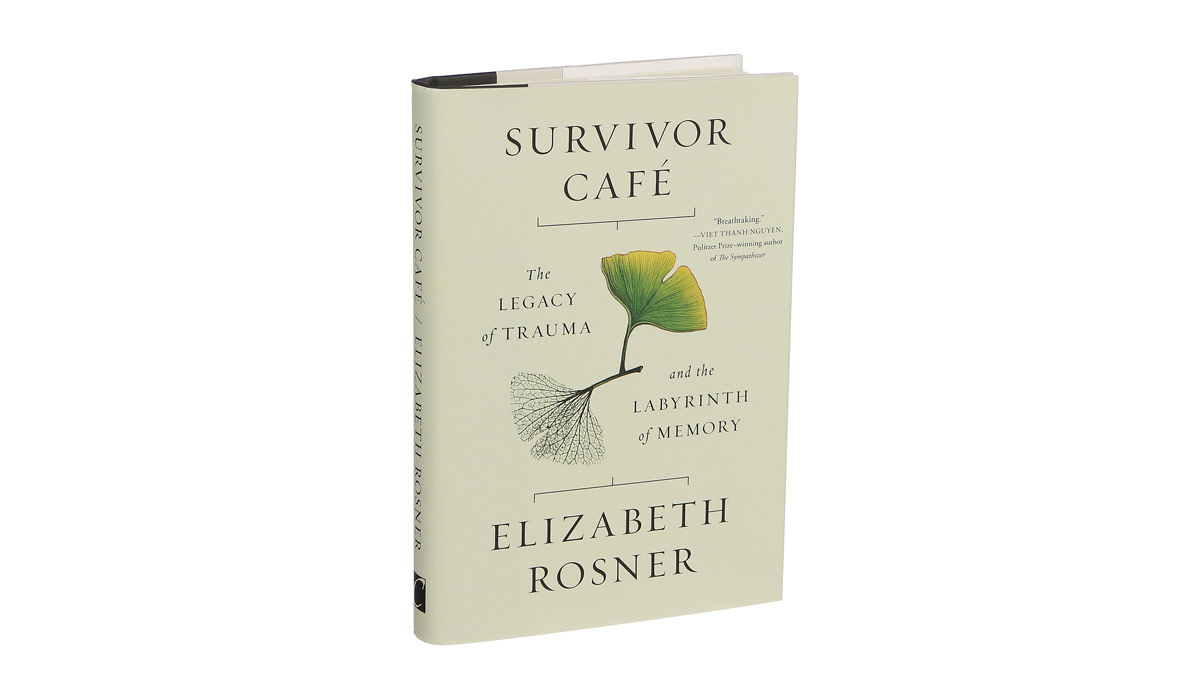Summer Reading: Survivor Café

It’s that time of year again, with the weather getting warmer, the days longer, maybe you’ve got some time off work coming up—time to talk about summer reading. This week on the podcast, Dan takes a look at the first of two books he’s recommending that we all consider reading this summer: Survivor Café: The Legacy of Trauma and the Labyrinth of Memory, by Elizabeth Rosner (next week, Just Mercy by Bryan Stevenson).
Dan: “You need a good story. […] And for me, the truer the story, the more it brings goosebumps as I read it.”
First, Dan shares two of the criteria he looks for in summer reading: a rich, compelling story, plus enough depth and complexity to cut through the noise of life and bring us to those deep questions we’re already asking about truth, goodness, and what it means to live well. We’re talking about so much more than an escapist novel that distracts us and helps pass the time; this is about reading to become a different person, to grow into more of who you are meant to be.
Dan: “It has to matter. It has to be something that changes me.”
Dan shares a quote from Franz Kafka that helps him determine if something is worth reading: “I think we ought to read only the kind of books that wound or stab us. If the book we’re reading doesn’t wake us up with a blow to the head, what are we reading for? […] We need books that affect us like a disaster, that grieve us deeply, like the death of someone we loved more than ourselves, like being banished into forests far from everyone, like a suicide. A book must be the axe for the frozen sea within us. That is my belief.”
This week’s recommendation, Survivor Café, is a stunning tale of Elizabeth Rosner’s engagement with the realities of generational trauma and the collective need to find ways to tell the stories of our deepest traumas, both individual and collective. Not merely a collection of data or a review of scientific theories, Survivor Café is organized around three trips that Rosner took with her father to the concentration camp at Buchenwald. She also zooms out to look at the traumatic effects of slavery, the bombings of Hiroshima and Nagasaki, South African apartheid, and more, driven by the question, “How do we talk about that which cannot be talked about? How do we tell the stories that must be told?”
Dan: “Memories have to be shared. But how do we share memories of that which floods us or which we’ve spent so much time dissociating? […] How do we name what is unnameable?”
As he wrestles alongside Rosner’s story, Dan returns to a theme from our recent series about a Theology of Abuse with Dr. Chelle Stearns: when trauma takes us beyond words, the creation of art can help us learn how to tell our story. Whether it’s playing music full of grief and beauty, creating something with our hands, or stringing together language in poetry, art can help bring meaning to trauma that “has to be engaged first and foremost somatically,” says Dan, “not just through grief, not just through anger, but through some form of expression.”
It is not enough to look for nice, simple words to put to rest or explain away the trauma we and others have experienced. We need raw, honest, unflinching looks at the reality of what happened—a guttural cry that brings expression to the unspeakable. Rosner’s book is a gift in that regard, and, even though she doesn’t use the language of Christianity, Dan says that her story reinforces his hope in the life, death, and resurrection of Jesus—the great progenitor of all new life that is found only on the other side of trauma.
Dan: “Suffering will not win. Death does not have the final word. If that promise is true, then we are the ones who have, I believe, the greatest cause and greatest light to enter the suffering of others—with nothing of trite truisms, with nothing of slight and light promises, but with the courage and the presence of being able to hold death and resurrection together.”
